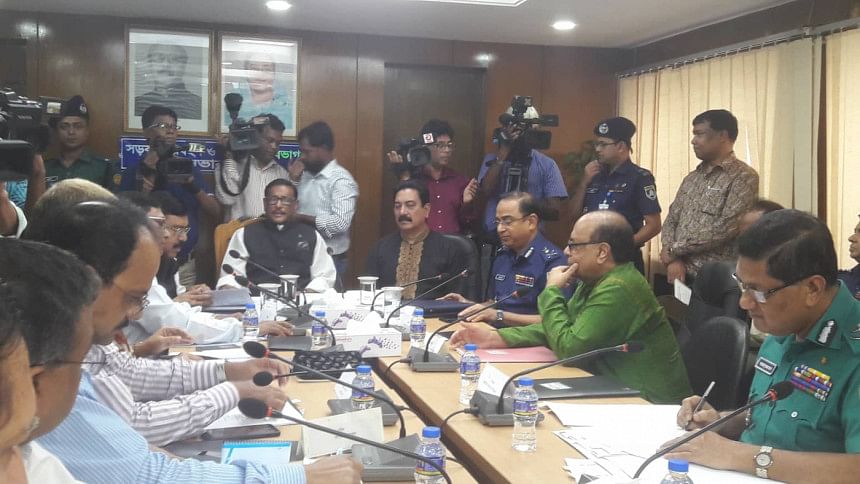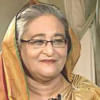Slow-vehicle ban to be strictly enforced

Road Transport Advisory Council (RTAC), a forum for solving problems in the road transport sector, yesterday decided to strictly enforce the ban on the movement of three-wheelers and other slow vehicles on highways for curbing road accidents.
The RTAC, which comprises ministers, officials and representatives of transport owners and workers, also decided to approach the commerce ministry for stopping the import of battery-run easy bikes' parts and continuing drives against local factories making such equipment.
Road Transport and Bridges Minister Obaidul Quader, also the chairman of the Council, disclosed the decisions after the 42nd meeting of the forum at the ministry yesterday.
The Council came up with the decisions at a time when the country witnessed several fatal road accidents on highways involving such vehicles.
In its previous meeting in October last year, the RTAC had taken similar decisions but the situation on many highways did not change much, people linked with the transport sector said.
The government had banned three-wheelers, including those made locally, and other slow vehicles on 22 national highways in August 2015. But these vehicles keep operating on the roads, causing frequent accidents.
They enjoy full support from local political leaders, who consider the owners and drivers of these vehicles their vote bank and a source of income, transport sector insiders said.
A participant said yesterday's meeting did not discuss this issue.
Within six days from this August 20 to 25, including the three-day Eid vacation, at least seven road accidents involved such vehicles (locally known as Nasiman, Kariman etc), killing at least 40 people and injuring 40 others, according to The Daily Star reports. Six of these accidents took place on highways where they are banned.
Against this backdrop, the council yesterday held a two-hour closed-door meeting. The council is supposed to meet at least once in three months. But the last council meeting was held nearly 10 months ago.
Shipping Minister Shajahan Khan, also the executive president of Bangladesh Road Transport Workers Federation, State Minister for Rural Development and Cooperatives Mashiur Rahman Ranga, also the president of Bangladesh Road Transport Owners' Association, Dhaka South City Corporation Mayor Sayeed Khokon, Inspector General of Police Mohammad Javed Patwary, secretaries of several ministries, divisional commissioners, and top ministry and police officials, among others, joined yesterday's meeting.
“We have discussed for two hours and took some decisions unanimously,” Quader said while briefing the media.
When journalist reminded him that many of yesterday's decisions had already been taken at the previous meeting, the minister claimed that 80 to 90 percent of three-wheelers and other slow vehicles no longer ply the highways.
“There is a lot of improvement in sight. However, everything will not be changed overnight,” he said.
After the previous meeting, Quader had said the government would make a decision on so-called “seating service” buses within a couple of weeks.
Asked why the decision has not been made yet, he said, “The matter is now with RTC [Regional Transport Committee] which will hold a meeting in this regard in the first week of next month. Please wait for a few more days.”
OTHER DECISIONS
The Council yesterday directed the authority concerned to formulate regional transport committees in districts which have no such committees. It also asked for holding regular committee meetings.
Claiming that 90 percent illegal bumpers of buses, trucks and covered vans had already been removed, Quader said their drive against such parts of vehicles would continue.
He said a committee, headed by Abdul Malek, additional secretary of the road transport and bridges ministry, had been formed to formulate a policy on the operation of easy bikes. It was asked to come up with its report by September 20.
Besides, he said they would write to the finance ministry to ensure all opportunities the transport sector deserved as an industry.
Bangladesh Road Transport Authority (BRTA) would continue its special programmes and its office would remain open from 9:00am to 9:00pm every day except Friday until further notice, he said. The BRTA would also increase its drives against unfit vehicles and drivers who violate traffic rules.
“We won't allow any Leguna [human haulier] type vehicles on national highways,” he said, adding they would ensure that no vehicles crossed the 80km speed limit on highways.
He also thanked the bus owners in Dhaka city for taking steps to stop contract-basis bus services and asked them to repair their vehicles next months.

 For all latest news, follow The Daily Star's Google News channel.
For all latest news, follow The Daily Star's Google News channel. 








Comments